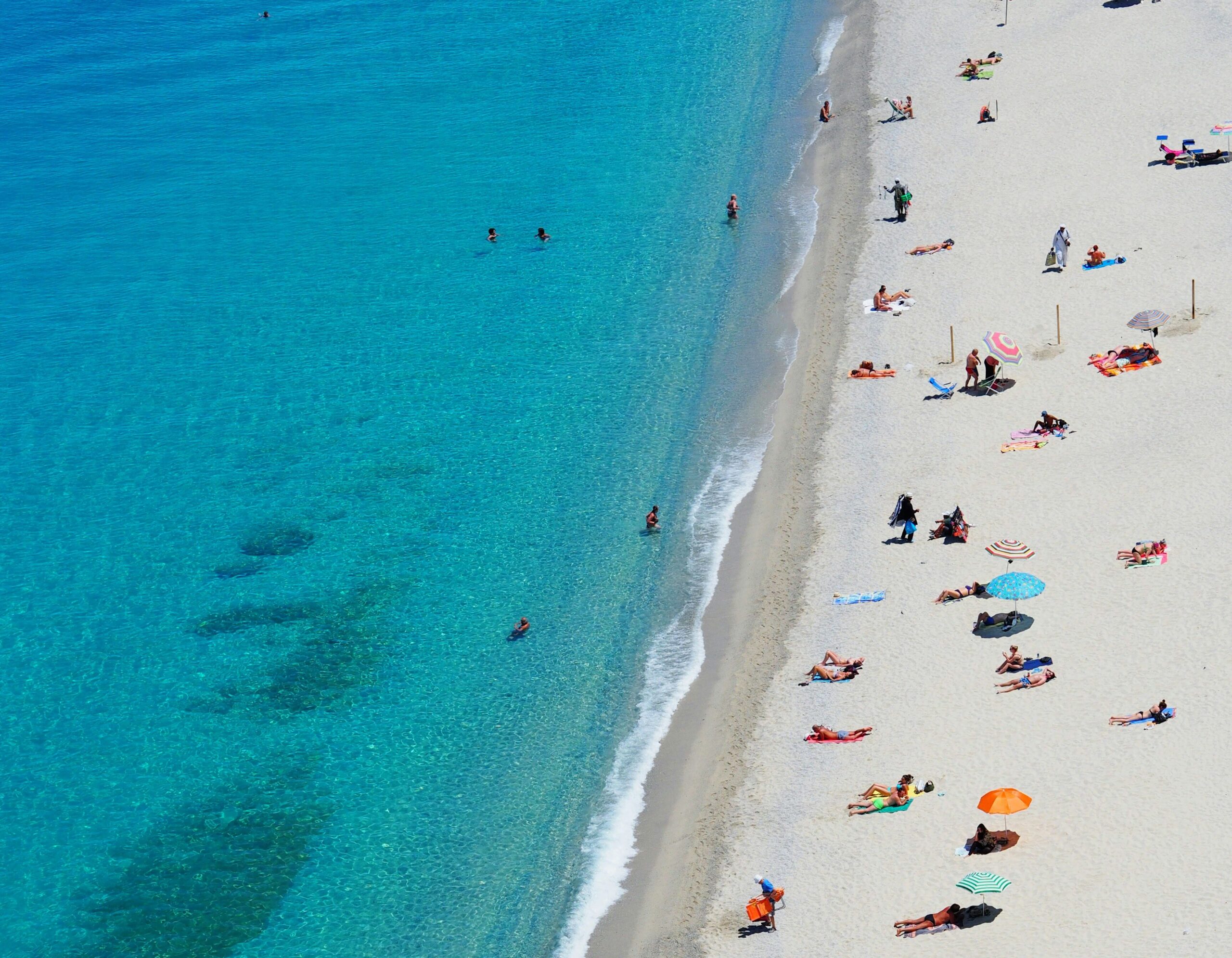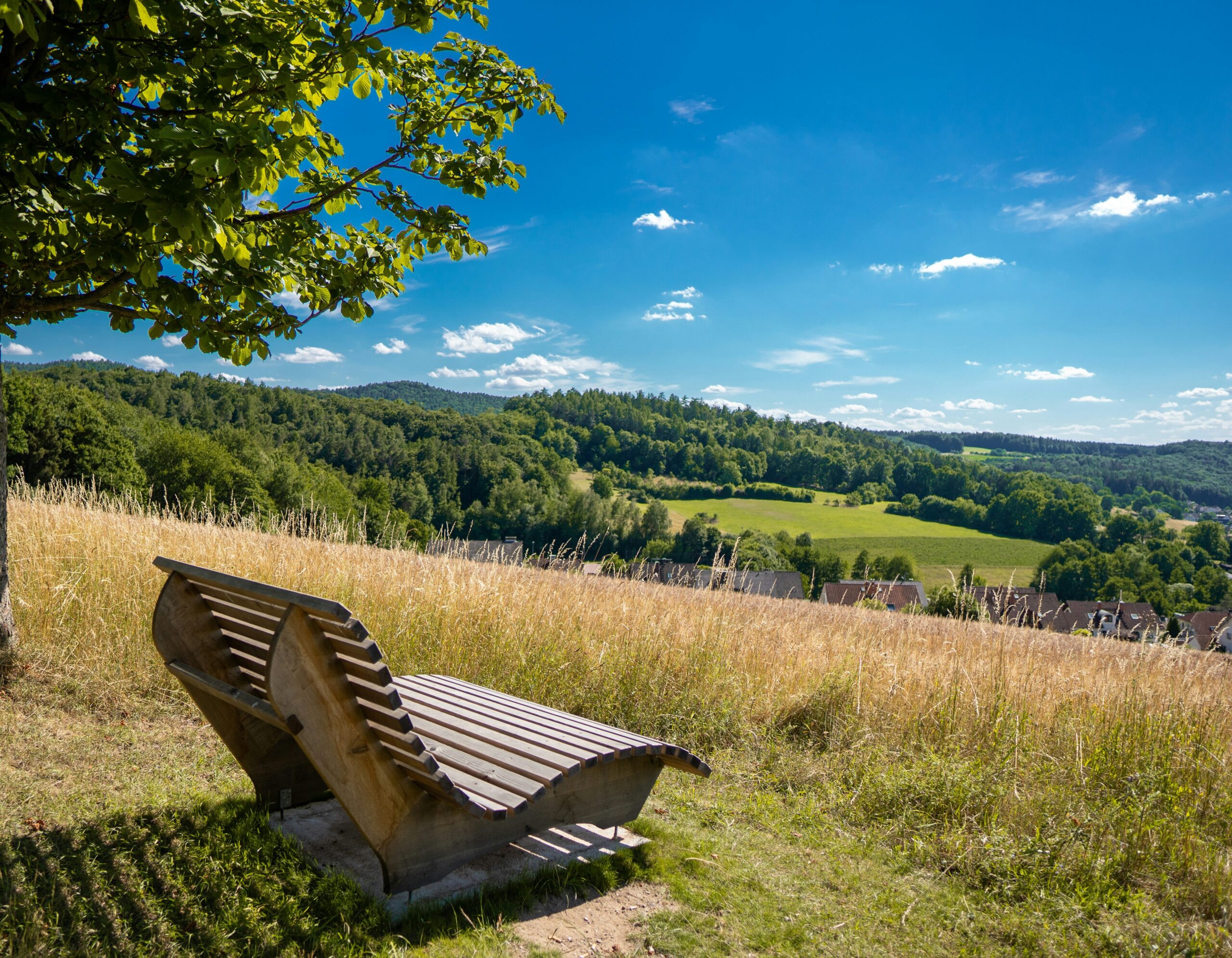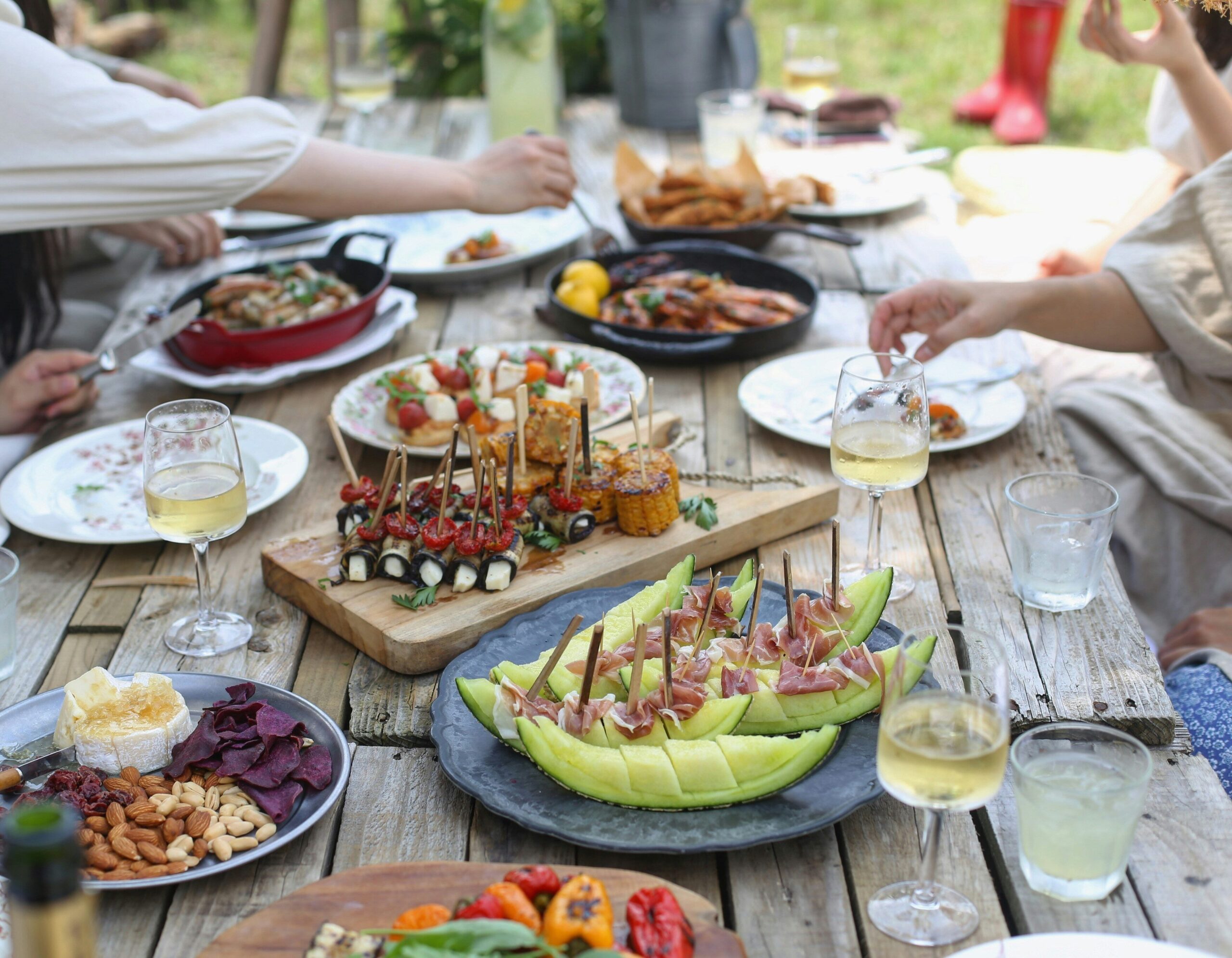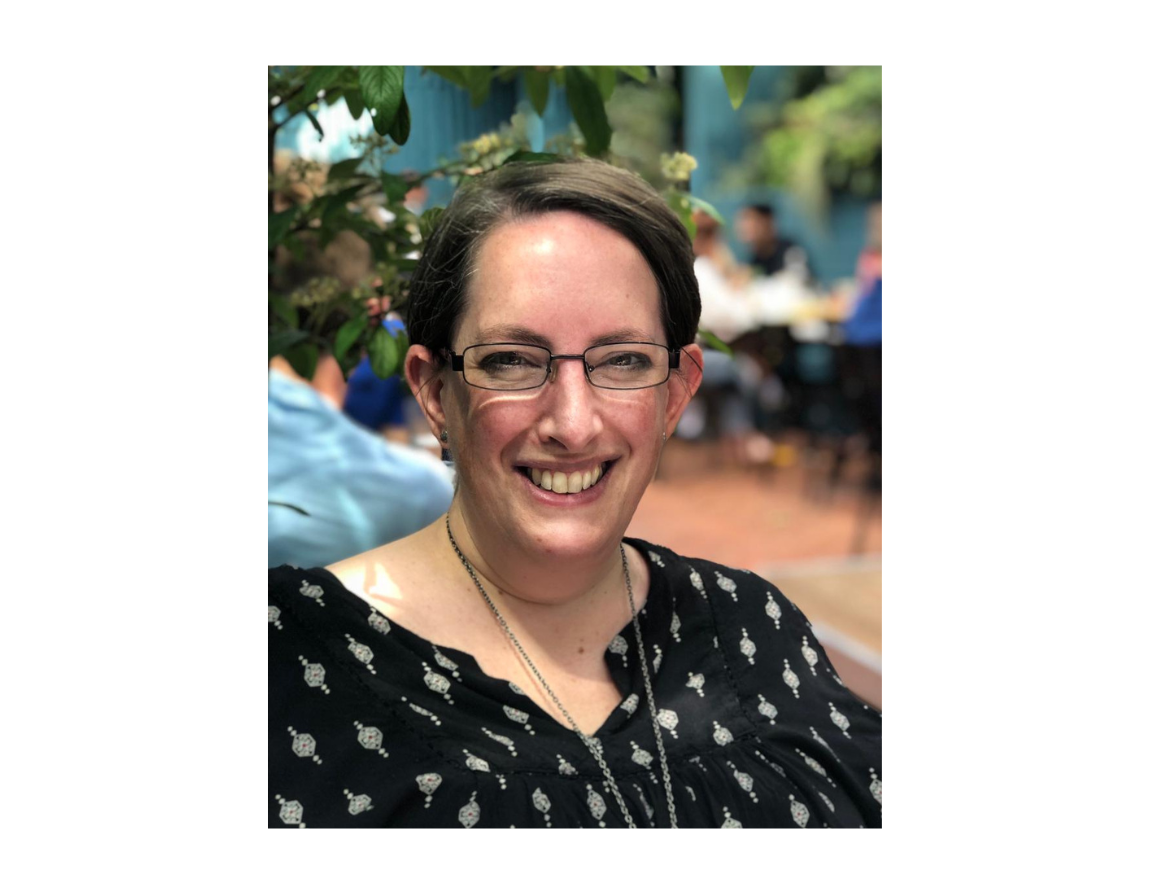The first of two reflections by Louise Davis, to get you into the holiday spirit, and suggest ways in which you can bring that spirit home with you.
27 July 2025
The holiday spirit
I imagine that we have all had the experience of being on holiday and thinking, ‘I wish everyday could be like this!’ There is something unique and special about the experience of taking a holiday, whether an extended stay in some exotic clime, a couple of days away just a few miles down the road, or even a true ‘staycation’, time carved out at home with days out either locally or slightly further afield.
Many of us are aware that the word ‘holiday’ derives from ‘holy day’, those days in the church calendar set aside to mark key events in the Christian story – Christmas and Easter, for example – or special people, such as saints. Despite the etymology, on the surface there is not much that is holy about the holidays we take nowadays. But I wonder if there is more that is holy about our holidays than we might realise. And, if that is the case, how might we bring that holiday holiness back into the pressures and ordinariness of everyday life.

Is there more that is holy about our holidays than we might realise?
Remember the Sabbath
Remember the Sabbath day and keep it holy. Six days you shall labour and do all your work. But the seventh day is a Sabbath to the Lord your God; you shall not do any work – you, your son or your daughter, your male or female slave, your livestock, or the alien resident in your towns. For in six days the Lord made heaven and earth, the sea, and all that is in them, but rested the seventh day; therefore the Lord blessed the Sabbath day and consecrated it.
Exodus 20:8–11 (NRSV)
As I started to think about holy days and holidays, the concept of sabbath and God’s designation of it as a holy day came to mind. These verses from Exodus provide a helpful, concise definition of a holy day.
That said, while they give us a clear template for what the sabbath day should not include – the work that enables you and your family to put food on the table and a roof over your head – they are light on the detail of what the sabbath should look like.
We do get some clues. The focus of the sabbath is God, not us. It is an opportunity to recalibrate, to lift our eyes up from the things that preoccupy us the rest of the week, to focus on who God is and what he has called us and the rest of his creation to be. Our holidays, wherever they are spent, give us the same opportunity to lift our eyes from the day-to-day preoccupations that might distract us, to recalibrate and focus on God in new and creative ways.

Our holidays, wherever they are spent, give us the opportunity to lift our eyes and focus on God.
God rested
God saw everything that he had made, and indeed, it was very good. And there was evening and there was morning, the sixth day. Thus the heavens and the earth were finished and all their multitude. On the sixth day God finished the work that he had done, and he rested on the seventh day from all the work that he had done. So God blessed the seventh day and hallowed it, because on it God rested from all the work that he had done in creation.
Genesis 1:31—2:3 (NRSV)
What constitutes a good holiday is a very personal thing, but I think it is safe to say that one of the priorities for most of us will be taking time to rest and focus on things, people and places that there seems to be little or no time for in day-to-day life.
Yet many of us struggle with rest. We have too many responsibilities, too many balls to juggle. Rest can all too often seem like a luxury. But right at the beginning of the Bible, at the heart of this epic account of why the world and humankind came into being, we are told that God rested. Having invested of himself for six days, he recognised that it was time to stop.
When life is going well and the things to which I am turning my hands are proving successful, I know I can all too easily fall into the trap of persuading myself that the sensible thing to do is keep going. Yet in this account of the creation, God chooses to rest at his point of greatest success and achievement.
If God is able to give himself permission to rest at the point of his greatest productivity, we really should grant ourselves the same permission.

Rest can all too often seem like a luxury. But right at the beginning of the Bible, we are told that God rested.
He lay down and fell asleep
But [Elijah] went a day’s journey into the wilderness and came and sat down under a solitary broom tree. He asked that he might die, ‘It is enough; now, O Lord, take away my life, for I am no better than my ancestors.’ Then he lay down under the broom tree and fell asleep. Suddenly an angel touched him and said to him, ‘Get up and eat.’ He looked, and there at his head was a cake baked on hot stones and a jar of water. He ate and drank and lay down again.
1 Kings 19:4–6 (NRSV)
This passage does not immediately appear to fit with the theme of holy days and holidays. And yet how many of us have found ourselves finally going on holiday – or even just taking a few extremely overdue days of annual leave – at the point at which we feel a bit like Elijah, burnt out and exhausted?
Elijah has come to the end of himself, and all he can do is curl up in a ball and go to sleep. But in taking that very small, very human step, he inadvertently begins a process of quiet, practical restoration that will enable him to meet with God in a new and powerful way. Sleep is followed by the miraculous provision of food and water, which is followed by more sleep. Which of us has not felt better – even under the most extreme circumstances – after a good meal and an even better sleep?
Many of us struggle with sleep, for myriad different reasons, and yet it is so vital for our health and well-being. While we sleep, our brains go through a complex process of sorting the previous day’s experiences, while our bodies are in turn absorbing and transforming the chemicals needed for them to function properly. It’s important not to feel guilty if we go on holiday and just need to sleep for three days, though admittedly this is not an option with small children.

Which of us has not felt better – even under the most extreme circumstances – after a good meal and an even better sleep?
A land that I will show you
Now the Lord said to Abram, ‘Go from your country and your kindred and your father’s house to the land that I will show you. I will make of you a great nation, and I will bless you and make your name great, so that you will be a blessing. I will bless those who bless you, and the one who curses you I will curse, and in you all the families of the earth shall be blessed.’
Genesis 12:1–3 (NRSV)
In my childhood, my family tended to go on holiday to new places each year, though always in the UK. Our summer trips took us to Norfolk, Cornwall, Northumberland and Wales, to name but a few.
Growing up in a busy, noisy south London suburb meant that travelling to and exploring the British countryside sometimes felt akin to discovering a whole new world. Single-track roads replaced the arterial route into central London on which we lived. Open fields unfolded all around us, contrasting with the walls and fences of the town. And the ‘country smells’ of farms offered a new olfactory experience after the tanneries which – in my childhood – flanked the open mouth of the northbound Blackwall Tunnel.
Journeys and travel are themes which return regularly throughout the Bible, and it is interesting to reflect on the number of individuals in the story of the people of God who are called to move out of a place which is familiar and go to a new place where they will experience God in new and transformational ways.
When I moved cities almost 15 years ago, I certainly found myself more consciously aware of my need for God’s guidance, wisdom and provision. There is something about the ‘unknowing’ of relocating to a new place – whether temporarily on holiday or more permanently – that forces us to lean more heavily on God, and, in my personal experience, spiritual growth often follows.
This is an edited extract from Louise’s series of reflections in New Daylight May–August 2024.

